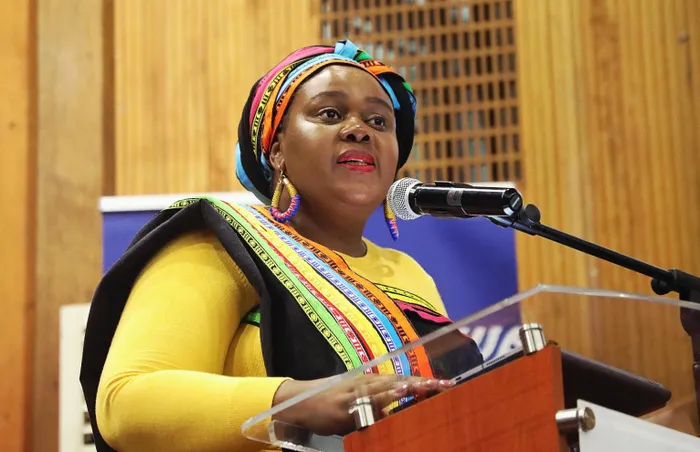New legislative efforts to make Sex Offenders Register accessible to public

Mmamoloko Kubayi initiated a multi-stakeholder consultative process, engaging experts and relevant institutions while working closely with the Office of the Information Regulator to ensure compliance with data privacy laws.
Image: IOL
A DRAFT amendment bill is undergoing consultation with the intention of making the National Register of Sex Offenders (NRSO) accessible to members of the public, says Justice and Constitutional Development Minister Mmamoloko Kubayi.
Kubayi was responding to parliamentary questions from Build One South Africa MP and deputy leader Nobuntu Hlazo-Webster.
Hlazo-Webster asked whether the department had sought a legal opinion after Kubayi committed to test the constitutionality of making the National Register for Sex Offenders accessible to the public.
The register is currently not open to the public, but is available for the public and private sectors to vet whether someone is suitable to work with children and other vulnerable groups.

Minister of Justice and Constitutional Development Mmamoloko Kubayi says she is committed to ensuring a phased and responsible public access to the National Register of Sex Offenders.
Image: Timothy Bernard / Independent Newspapers
Kubayi previously said they were advocating for amendments to the confidentiality and disclosure clauses of the Sexual Offences and Related Matters Act with the goal of making the register publicly accessible.
She had said a multi-stakeholder consultative process was initiated by engaging key experts and institutions to facilitate compliance to release the register as soon as possible.
Responding to Hlazo-Webster, Kubayi said her department had approached the Office of the Chief State Law Advisor (OCSLA) to seek a legal opinion on the constitutionality of the publication of the National Register for Sex Offenders.
The legal opinion primarily considered the objects of the NRSO, which establishes and maintains a record of particulars of sex offenders.
“OCSLA concluded that the register cannot be made available to the general public. This is because Section 52 of the Act prohibits and criminalises publication of the register, except for the purpose of giving effect to the provisions of the Act; or when required to do so by any competent court,” she said.
Kubayi also said the legal opinion had concluded that there must be a law of general application that authorises the limitation of the guaranteed rights of persons whose names have been entered in the registers by publishing the registers.
“On the basis of the above, I have directed the department to attend to the necessary legislative amendments to allow the register to be accessible.
“We remain committed to safeguarding children and vulnerable persons by ensuring the NRSO is accessible in a lawful and responsible manner.”
Kubayi stated that an amendment bill has been drafted, and it is currently undergoing internal consultation.
“Further consultations will be undertaken with experts, including the Information Regulator, regarding the accessibility of the register. Once this consultation has been concluded, the bill will then be subjected to the parliamentary processes.”
Kubayi also said she was committed to ensuring a phased and responsible accessibility to the register.
“The department is also prioritising providing swift and responsible access for institutions that work with vulnerable groups, such as schools, day-care centres, and care facilities, to support their vetting processes. To achieve this, there is an intention to create more capacity in the Registrar’s office, including in the various provinces, to process applications efficiently and expeditiously,” she said.
Kubayi added that her department will be engaging with the Departments of Basic Education, Police, Higher Education, and all other key stakeholders, including NGOs, to understand the full extent of the issues and provide feedback on the interventions that are being put in place.
Kubayi noted that the government has noted that the gender-based violence and femicide (GBVF) scourge continued to ravage the country despite the interventions put in place.
Cape Times